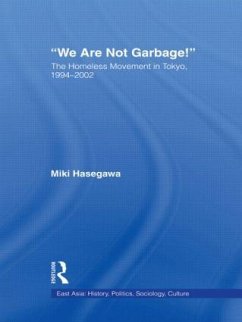
Defending Japan's Pacific War
The Kyoto School Philosophers and Post-White Power
Versandkostenfrei!
Versandfertig in 1-2 Wochen
64,99 €
inkl. MwSt.
Weitere Ausgaben:

PAYBACK Punkte
32 °P sammeln!
This book puts forward a revisionist view of Japanese wartime thinking. It seeks to explore why Japanese intellectuals, historians and philosophers of the time insisted that Japan had to turn its back on the West and attack the United States and the British Empire. Based on a close reading of the texts written by members of the highly influential Kyoto School, and revisiting the dialogue between the Kyoto School and the German philosopher Heidegger, it argues that the work of Kyoto thinkers cannot be dismissed as mere fascist propaganda, and that this work, in which race is a key theme, consti...
This book puts forward a revisionist view of Japanese wartime thinking. It seeks to explore why Japanese intellectuals, historians and philosophers of the time insisted that Japan had to turn its back on the West and attack the United States and the British Empire. Based on a close reading of the texts written by members of the highly influential Kyoto School, and revisiting the dialogue between the Kyoto School and the German philosopher Heidegger, it argues that the work of Kyoto thinkers cannot be dismissed as mere fascist propaganda, and that this work, in which race is a key theme, constitutes a reasoned case for a post-White world. The author also argues that this theme is increasingly relevant at present, as demographic changes are set to transform the political and social landscape of North America and Western Europe over the next fifty years.














